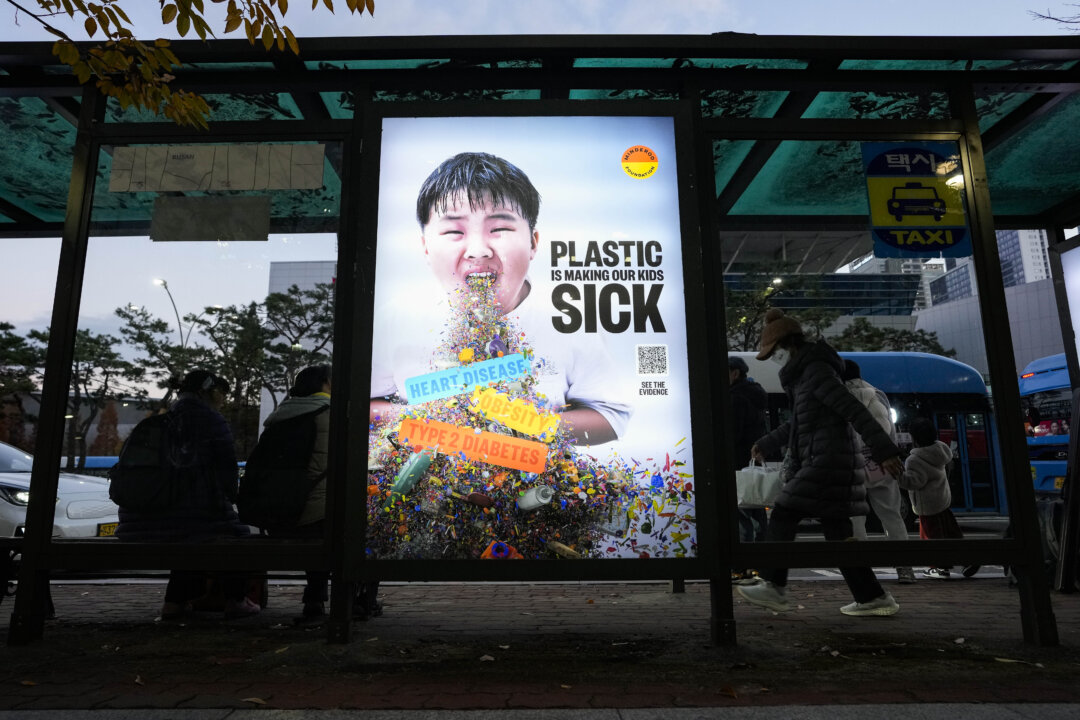The summit in Busan, South Korea, was supposed to be the last of its kind, but consensus on what to include in the agreement could not be reached.
Negotiations to reach a global treaty aimed at curbing plastic pollution collapsed on Dec. 2 after oil-producing nations blocked a plan, supported by more than 100 countries, to cap production.
The fifth U.N. Intergovernmental Negotiating Committee (INC-5) meeting in Busan, South Korea, began on Nov. 25 and was intended to conclude on Dec. 1 with a legally binding global treaty.
The summit, intended to be the last of its kind, ended in failure after some nations said they were only prepared to target plastic waste, rather than capping global plastic production.
Delegates agreed to postpone major decisions until they reconvene at a yet-to-be-determined later date.
“It is clear that there is still persisting divergence,” U.N. Environment Programme Executive Director Inger Andersen said.
One option proposed by Panama would have created a path for a global plastic production reduction target. The proposal was backed by more than 100 countries but was not passed.
Another proposal, which did not include production caps, also failed to pass. For any proposal to make it into the treaty, every nation must agree to it.
The divisions were outlined in a revised document released on Dec. 1 by Luis Vayas Valdivieso, the Ecuadorian chair of the meeting.
He stated that the topics causing the most friction included capping plastic production, managing plastic products and chemicals of concern, and financing for developing nations.
Juliet Kabera, director general of Rwanda’s Environment Management Authority, said a treaty that only relies on voluntary measures would not be acceptable.
“It is time we take it seriously and negotiate a treaty that is fit for purpose and not built to fail,” Kabera said.
Several nations with economies heavily dependent on fossil fuels, such as Saudi Arabia, Russia, Iran, Kuwait, and India, opposed efforts to curb plastic production and used procedural maneuvering to stymie talks.
Saudi delegate Abdulrahman Al Gwaiz said there was never any consensus.
“There are a couple of articles that somehow seem to make it [into the document], despite our continued insistence that they are not within the scope,” Gwaiz said.
South Korean Foreign Affairs Minister Cho Tae-yul said that although no treaty was agreed upon, the delegates’ efforts had brought the world closer to a unified solution to plastic pollution.
Plastic production is on track to triple by 2050, and microplastics have been found in the air, fresh produce, and even human breast milk.
More than 3,200 chemicals in plastics “have one or more hazardous properties of concern,” according to a 2023 U.N. Environment Programme report, which said women and children were particularly susceptible to their toxicity.
China, the United States, India, South Korea, and Saudi Arabia were the top five primary polymer-producing nations in 2023, according to data provider Eunomia.
The postponement of the U.N. summit occurred just days after the conclusion of the COP29 summit in Baku, Azerbaijan.
In the Azeri capital, countries set a global target for mobilizing $300 billion annually in climate finance, a deal that small island states and many developing countries said was nowhere near enough.
Reuters contributed to this report.

